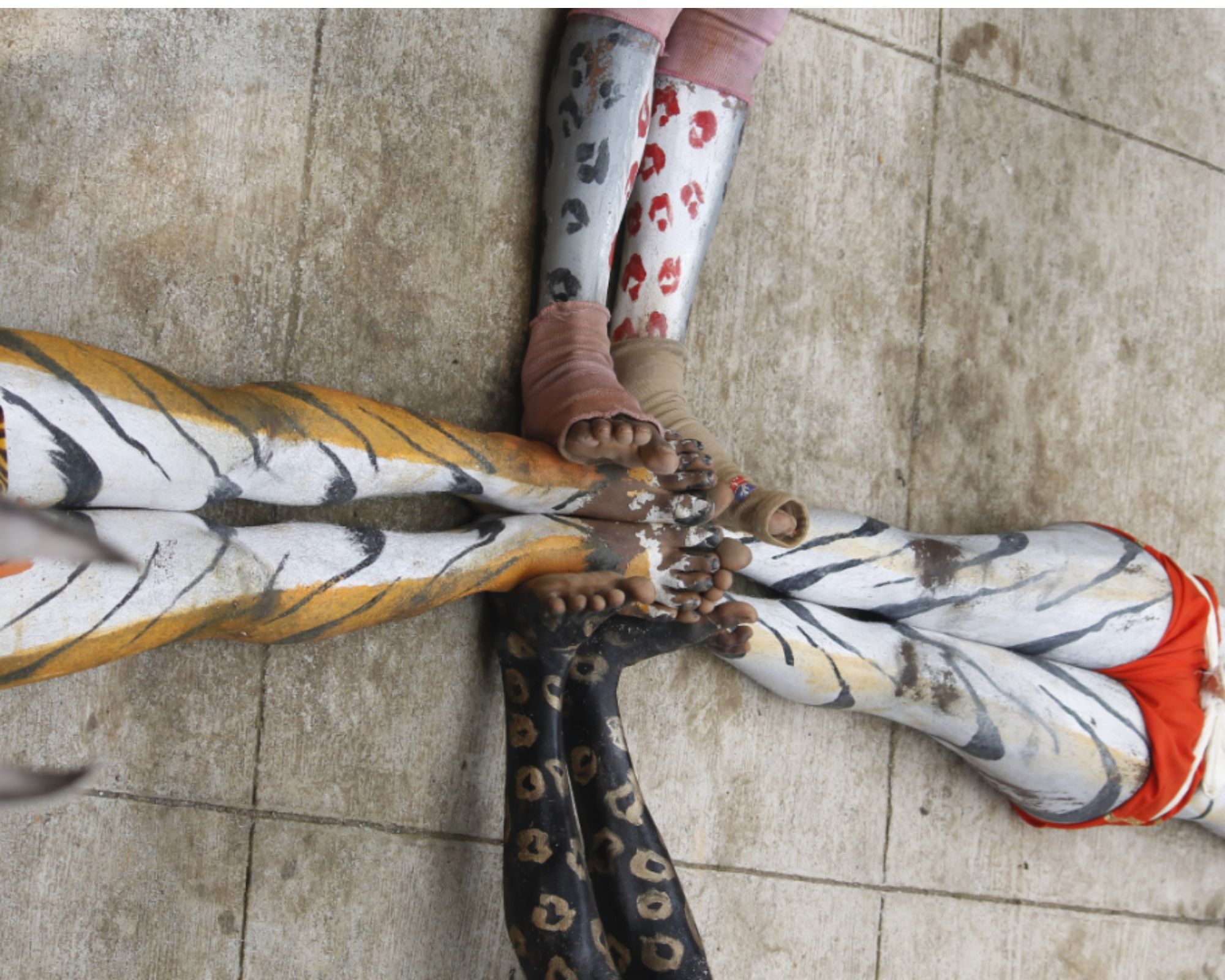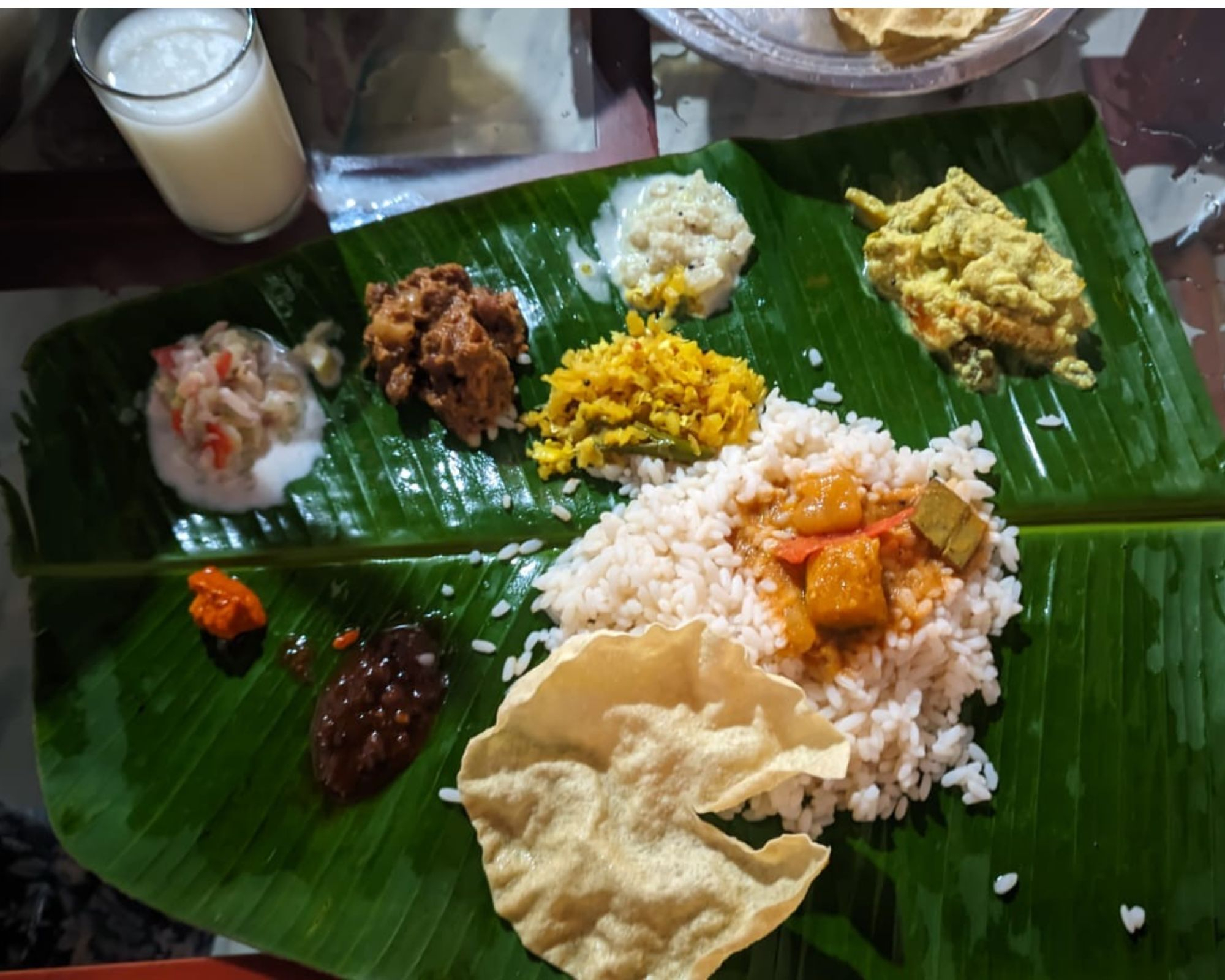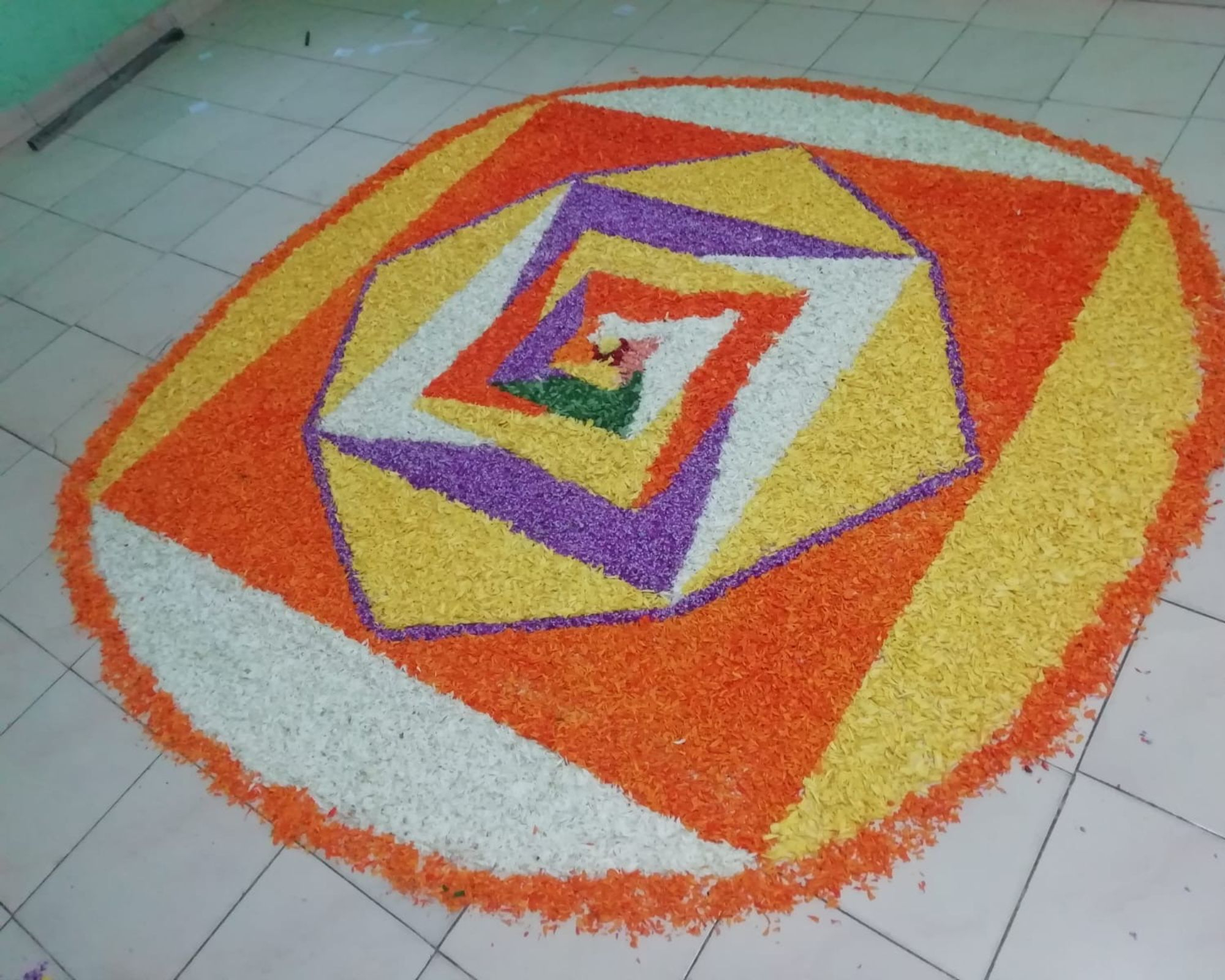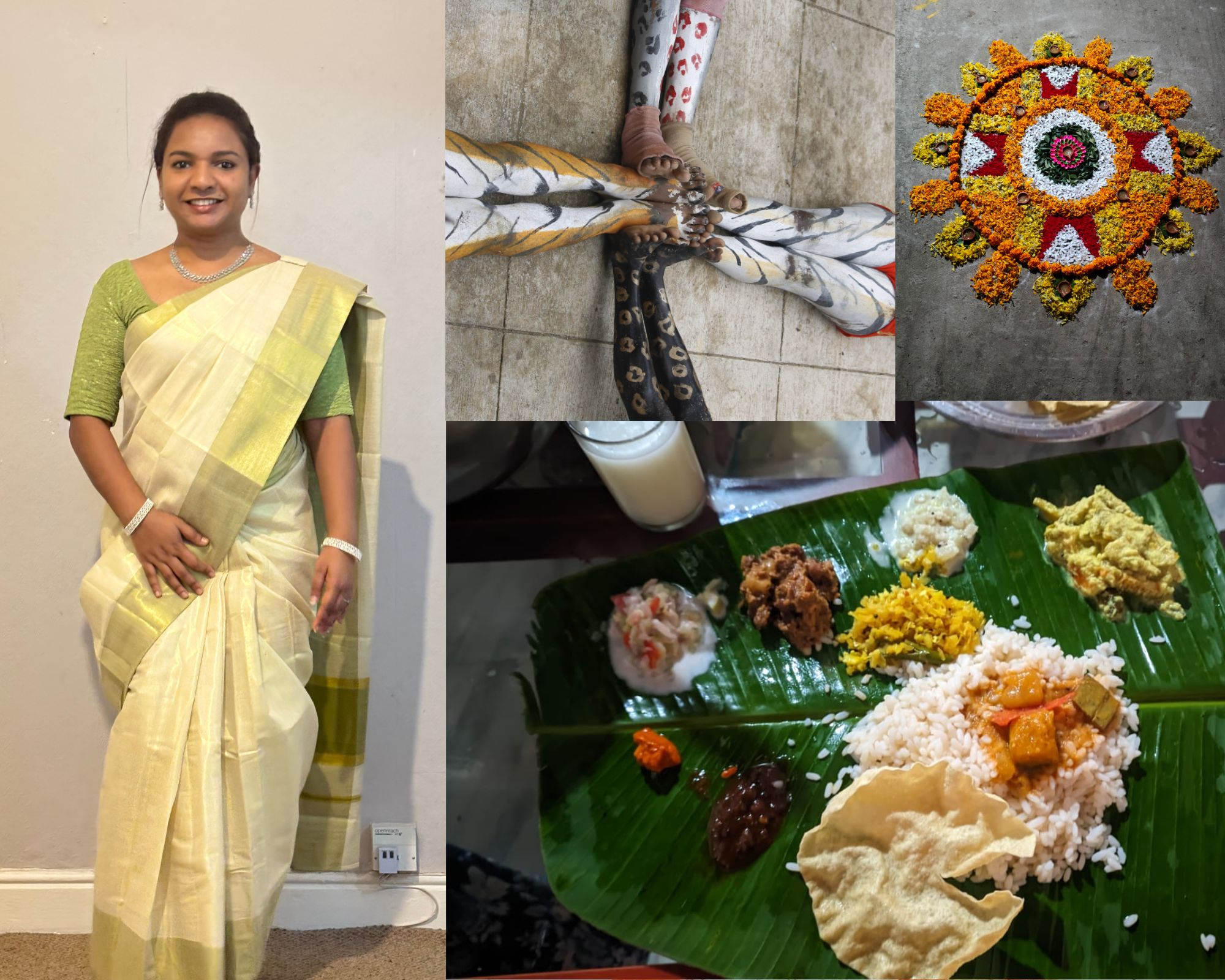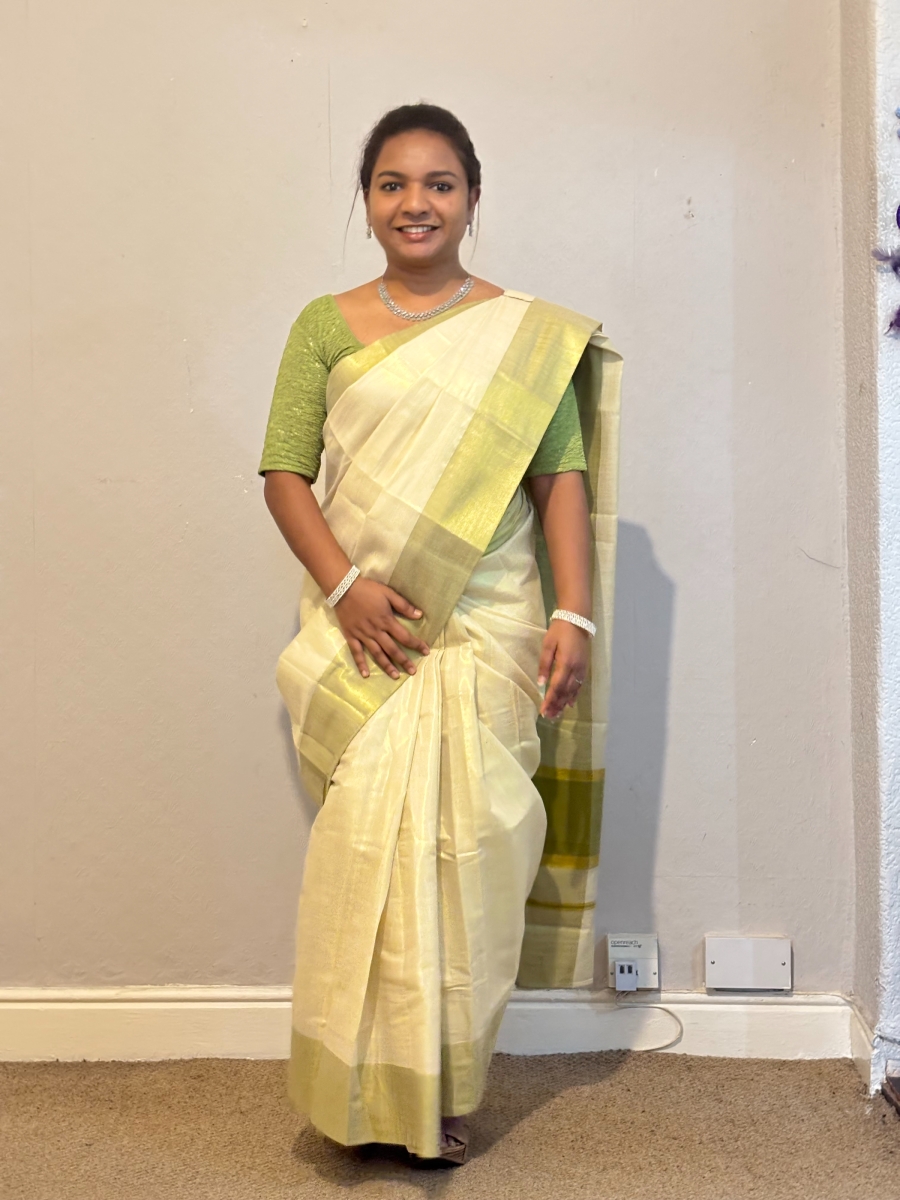As part of our South Asian Heritage Month celebrations across the Trust, Nurse Reshma Nallumalayil is sharing her story and telling us about an upcoming special festival from the southern Indian state of Kerala, from where she hails.
“Hi everyone, I’m Reshma. I’m a nurse on Scarisbrick Unit in Ormskirk and joined the Trust on 23 May 2023.
I did my four-year nursing degree at Yenepoya University which is a private medical University in the southern Indian state of Karnataka.
When I was studying, I was fascinated by the mental health modules. People in India don’t tend to talk about mental health, there is a sense of people feeling ashamed to talk about it, society in India has a different attitude towards it, but it was really exciting for me to learn about it.
After working on a surgical ward for a couple of years after graduating, I decided to do a 2-year Masters in Mental Health Nursing which I completed in 2020.”
Having lived in Lancashire for the last two years Reshma explains:
“All the while doing my Masters I wanted to come to the UK and have the experience of working in mental health here, I was really excited to come over and the team in Ormskirk were really welcoming. Since joining the Trust, it’s really inclusive so as it’s South Asian Heritage Month, as part of celebrations, I’ll tell you a little about India and where I grew up. It’s made up of 29 states, each with their own culture and language.
The universal Indian language is Hindi, but each state has its own ‘mother tongue.’ I grew up in Kerala in Southern India and its language is called Malayalam. At school from the age of six, I learnt Hindi and English.
Onam is Kerala’s grandest and most beloved festival, a vibrant harvest celebration that blends mythology, culture, and community spirit. It lasts a week and includes a spectrum of cultural events; this year it starts on 26 August."
If you are wondering what the celebration involves, Reshma explains:
“Onam honours the annual homecoming of King Mahabali, a legendary ruler known for his generosity and justice. According to Hindu mythology, Lord Vishnu in his Vamana avatar sent Mahabali to the netherworld but granted him permission to visit his people once a year, so Onam marks this joyful reunion, symbolizing humility, devotion, and prosperity.
In Kerala we wear the traditional set saree, which is golden coloured, girls start wearing them for festivals as teenagers. So, during Onam I’d wear the set saree and a jasmine flower in my hair.
Celebrations during Onam include Pulikali, a special folk art tiger themed dance, otherwise known as tiger play, which tells a story centred around the festival. We also cook a special meal during Onam and eat with wider family with around 10 to twenty curries all served in a banana leaf.”
The tiger-play is a joyful and colourful celebration. Reshma reveals:
“The Pulikali artists paint themselves with vibrant colours to resemble tigers and leopards and dance to the rhythm of traditional instruments like Chenda and Chengila, types of drums and they mimic the movements and roars of tigers. It takes place on the fourth day, so this year on 30 August, which is known as Naalaam Onam.
Around 200 Years ago, the King of Cochin initiated the dance and tradition to display the bravery and spirit of his soldiers and it’s a really exciting spectacle to watch as part of harvest celebrations in Kerala.
We also make rangoli floral designs known as Pookalam during Onam. Poo means flower and kalam means artwork.
I really hope you’ve enjoyed learning a bit about Onam and some of the culture from my home state of Kerala.”
